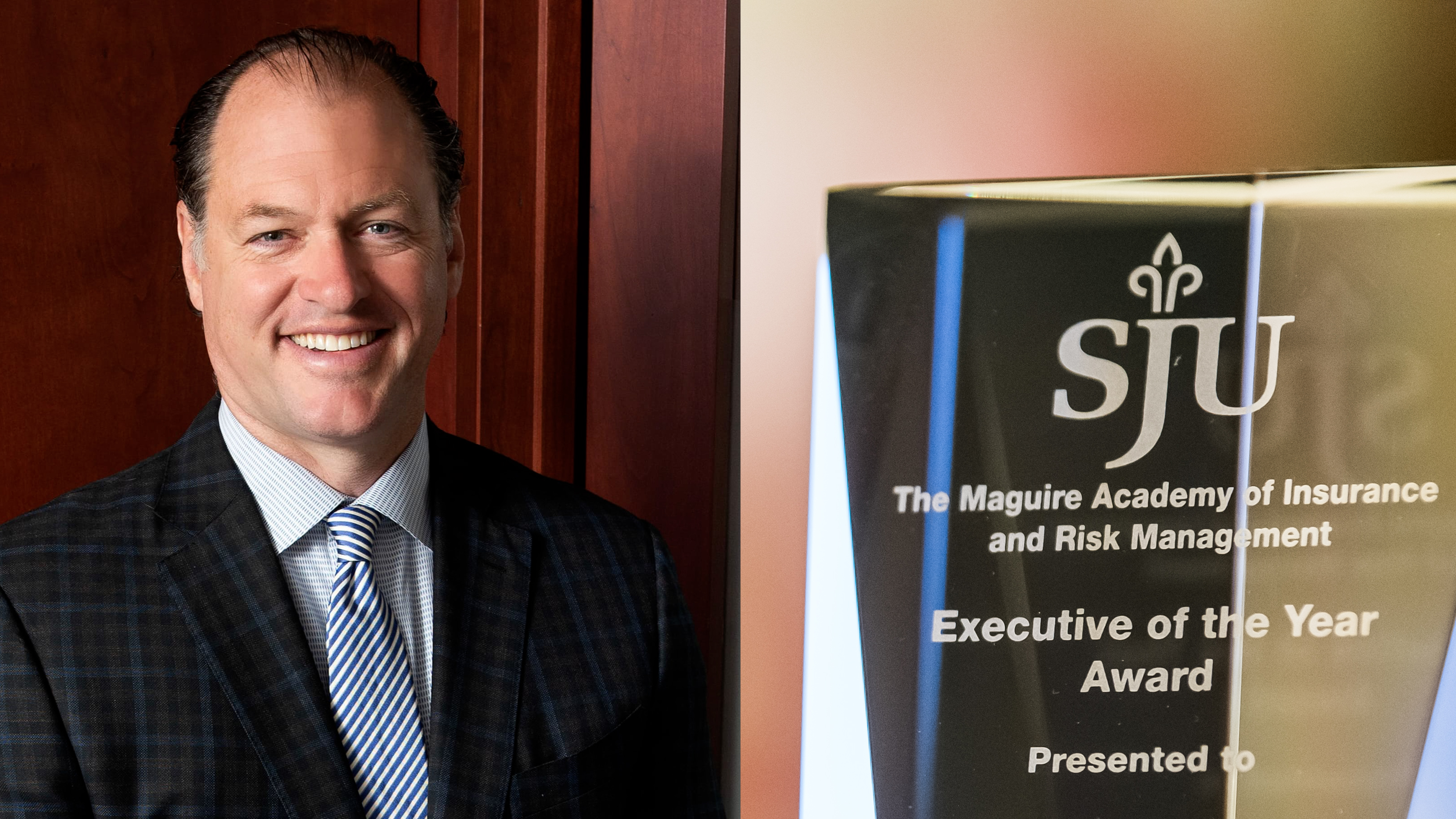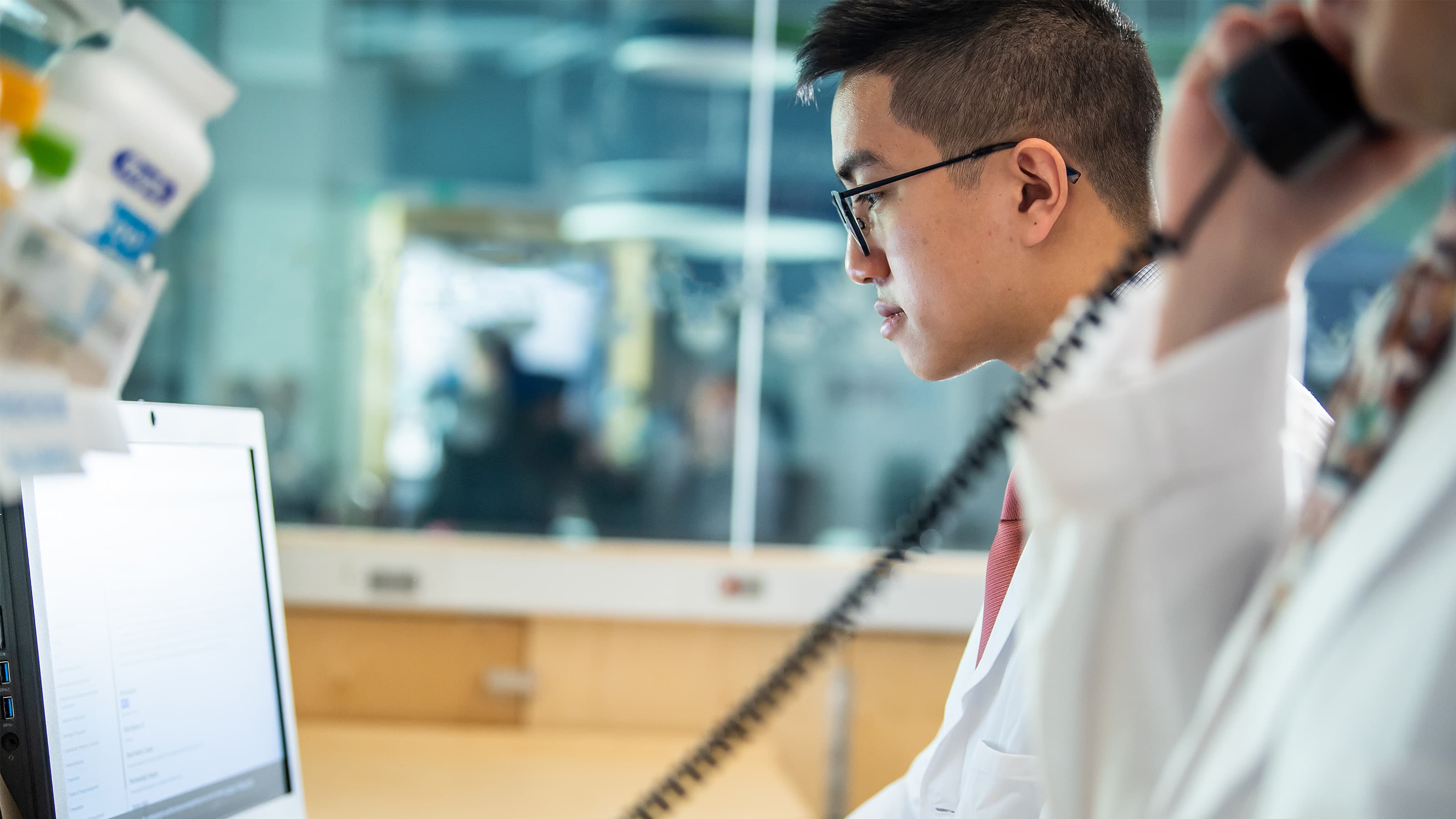UN Sustainable Development Goals Dashboard Gets a Spotlight at Davos
At the 2020 World Economic Forum, David Steingard, Ph.D., associate professor of management, spoke as part of a panel on the role of the UN Sustainable Development Goals (SDGs) in higher education.
 David Steingard, Ph.D., associate professor of management, discusses the role of the UN Sustainable Development Goals (SDGs) in higher education at the 2020 World Economic Forum. Photo by Elma Okic/Courtesy of the UN Global Compact.
David Steingard, Ph.D., associate professor of management, discusses the role of the UN Sustainable Development Goals (SDGs) in higher education at the 2020 World Economic Forum. Photo by Elma Okic/Courtesy of the UN Global Compact.
Climate change took center stage at the recent World Economic Forum in Davos, Switzerland, which brings together government leaders, academics and entrepreneurs to discuss the key issues, risks and challenges facing the world in the coming years.
While Davos typically has a strong focus on the economy and geopolitics, global warming has now become central to those discussions – and seemed particularly timely this year, as the devastation caused by wildfires in Australia filled the news.
Key to the United Nations’ efforts to convince the public and private sector to step up efforts to adopt more environmentally sound practices are its 17 Sustainable Development Goals (SDGs). The goals, which focus on issues including eradicating poverty and hunger, creating sustainable communities, and achieving clean water and sanitation and affordable and clean energy, are intended to be achieved by the year 2030.
Among the experts talking about the SDGs at Davos was Saint Joseph’s University Associate Management Professor David Steingard, Ph.D. As part of a panel on the role of the SDGs in higher education, Steingard discussed a data analytics tool, the SDG Dashboard, that he and colleagues at Saint Joseph’s developed to measure institutional progress toward the SDGs.
“Davos is viewed as a space for unveiling global innovations to improve the world, like massive global vaccine initiatives, and this year, of course, transformative capitalism for good,” Steingard says. “Featuring the SDG Dashboard in this milieu helped contextualize our work as contributing to the complex and oftentimes vexing issues of our time.”
“Featuring the SDG Dashboard in this milieu helped contextualize our work as contributing to the complex and oftentimes vexing issues of our time.”
David Steingard, Ph.D.
Associate Professor, ManagementThe SDG Dashboard, created in 2017, allows institutions to concretely capture, measure and showcase how they are contributing to the 17 goals. Steingard was inspired to create the tool after Saint Joseph’s joined the UN’s Principles for Responsible Management Education (PRME) initiative as an Advanced Signatory member in 2016. PRME is a widely recognized global business association focused on sustainable management education.
Steingard spent a sabbatical pondering the question, “What would it look like if the PRME business schools and others started to seriously incorporate these SDGs into their outlooks, their relationships with communities, into everything?” and “How would they measure it?”
First, Steingard developed an extensive survey that prompts business schools to showcase all of the work they are doing toward fulfilling the SDGs — through teaching, academic research, community work, outreach, campus integration and partnerships. Then, he worked with Kathleen Campbell Garwood, Ph.D., assistant professor of decision and system sciences, to create data visualizations to show a clear picture of what business schools’ sustainability work looks like.
Students were brought into the process, too. Steingard and Garwood recruited undergraduate and graduate students to help shape and develop the dashboard, and business intelligence and analytics majors to help analyze data when schools complete the survey.
Shortly after launching the dashboard, the tool caught the interest of business schools at colleges and universities across the globe, creating a demand of the tool. Now, it’s catching the eye of major companies, like SAP.
At Davos, Steingard discussed the importance of teaching sustainability principles to future leaders alongside fellow panelists Ann Rosenberg, senior vice president for UN partnerships at SAP and global head of SAP Next-Gen; Christoph Meinel, president and CEO of HP; and Mette Morsing, UN Global Compact senior adviser. Steingard also shared the SDG Dashboard with many academics at a PRME event. Overall, he says there was “tremendous receptivity” to the tool.
“General awareness of and interest in the SDGs is on the rise. Companies, corporations, higher education and civil society are coming together to support the achievement of the SDGs by 2030,” Steingard says. “The SDG Dashboard is very effective at highlighting and sharing a particular institution’s best practices advancing the SDGs. Universities appreciate the opportunity to be recognized for the great work they are doing in SDGs – and this is exactly the point of the SDG Dashboard.”
The panel, held on January 23, was part of the UN SDG Media Zone, an initiative brought to Davos to mark the 20th anniversary of the UN Global Compact.
According to Steingard, universities are becoming increasingly interested in incorporating the SDGs because they’re a way to show how they are contributing to pressing global issues such as climate change, economic growth, promoting gender equality and environmental sustainability.
“The SDG Dashboard is also a management tool institutions can utilize to assess their progress and opportunities to make real change on issues underlying the SDGs,” he says.
Steingard says he was encouraged to see many efforts aimed at developing cross-sectoral solutions to climate change and other pressing global issues highlighted at Davos.
“Across the global economy and the education system that serves it, there are sea changes in corporate purpose, ethics, human rights, sustainability, diversity and innovative capitalism for the betterment of person and planet,” he says. “It is evident that this economic and education transformation aligns perfectly with core concepts of Ignatian values, Catholic Social Teaching, social justice and sustainability championed at Saint Joseph’s.”



